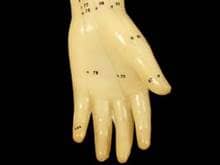
By Paul Kempisty, NCCAOM-certified acupuncturist, as interviewed by Lilit Marcus
You may have heard celebrities or TV personalities talk about how acupuncture soothed their chronic pain or helped them quit smoking, but there's a lot more to this ancient technique. Whether you're a longtime fan of alternative medicine or just looking to expand your current treatment regimen, this article will help you to learn about acupuncture, how it works, and what benefits it might have for you.
1. What conditions or illnesses can acupuncture treat?
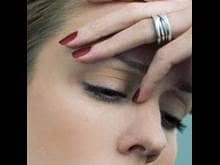 Nausea, headaches, lower-back pain, and other chronic illnesses are proven by medical studies to be alleviated by acupuncture. Devotees of acupuncture say that it can also help with everything from stress to weight loss, from infertility to blood pressure to breaking habits like smoking. Acupuncture is a kind of holistic medicine, meaning it treats the mind, body, and soul as one. Therefore, almost any condition can be aided by acupuncture.
Nausea, headaches, lower-back pain, and other chronic illnesses are proven by medical studies to be alleviated by acupuncture. Devotees of acupuncture say that it can also help with everything from stress to weight loss, from infertility to blood pressure to breaking habits like smoking. Acupuncture is a kind of holistic medicine, meaning it treats the mind, body, and soul as one. Therefore, almost any condition can be aided by acupuncture.2. Exactly how does acupuncture work?
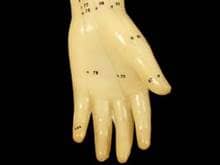 The vocabulary of Chinese medicine is based on the metaphors used to describe the natural world. Throughout our bodies, we have systems of "meridians" that are mapped out via specific acupuncture points. These points are the powerful areas that stimulate various functions in the body. Acupuncture points each have names, including Hidden Valleys, Gushing Streams, Kunlun Mountains, and Source Receptacles. When you put a needle in a point, you stimulate the functions of that point. You either bring energy to that point or you remove energy from it.
The vocabulary of Chinese medicine is based on the metaphors used to describe the natural world. Throughout our bodies, we have systems of "meridians" that are mapped out via specific acupuncture points. These points are the powerful areas that stimulate various functions in the body. Acupuncture points each have names, including Hidden Valleys, Gushing Streams, Kunlun Mountains, and Source Receptacles. When you put a needle in a point, you stimulate the functions of that point. You either bring energy to that point or you remove energy from it.The meridians are also connected to the organs or the body. Your organs are like roadways or canal systems, and they either need more traffic or less at any given time. They need resources to be distributed in a certain way, and the points do that.
3. How do I choose an acupuncturist if I've never been to one before?
 If your insurance company covers acupuncture, you should check out their approved list of practitioners. However, if you're choosing one randomly, make sure that the acupuncturist is licensed by NCCAOM (National Certification Commission for Acupuncture and Oriental Medicine). They have lists you can reference by geographic area on their www.nccaom.org. You may also want to ask a friend for a recommendation.
If your insurance company covers acupuncture, you should check out their approved list of practitioners. However, if you're choosing one randomly, make sure that the acupuncturist is licensed by NCCAOM (National Certification Commission for Acupuncture and Oriental Medicine). They have lists you can reference by geographic area on their www.nccaom.org. You may also want to ask a friend for a recommendation.4. What kinds of things should I be ready to discuss at my first acupuncture appointment?
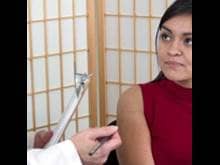 Whatever your chief complaint is, bring that up. If an acupuncturist is knowledgeable in Western medicine, he or she might want to talk about the treatments you've already done, or discuss the medical options you have. The acupuncturist will also lay out how the Chinese medicine philosophy applies to that particular ailment. Then the acupuncturist should ask questions that help refine a diagnosis in terms of Chinese medicine. The basic questions are things like: "You have a headache; what makes it better, what makes it worse?", "Where is the pain located?", or "What is the nature of the pain?"
Whatever your chief complaint is, bring that up. If an acupuncturist is knowledgeable in Western medicine, he or she might want to talk about the treatments you've already done, or discuss the medical options you have. The acupuncturist will also lay out how the Chinese medicine philosophy applies to that particular ailment. Then the acupuncturist should ask questions that help refine a diagnosis in terms of Chinese medicine. The basic questions are things like: "You have a headache; what makes it better, what makes it worse?", "Where is the pain located?", or "What is the nature of the pain?"The practitioner's questions elicit information on which organs are overactive, which meridians are underactive, which is the weak link in the chain, and which is compensating. That helps us choose acupuncture points which will treat that condition.
5. Do the needles hurt?
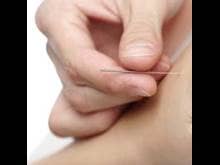 No, if the acupuncturist is skilled, the needles really do not hurt. You feel something, a small sensation, but it's not like the type of needling that you experience when you give blood. Acupuncture needles are so thin, you can fit anywhere from five to ten of them inside the hollow of a hypodermic needle.
No, if the acupuncturist is skilled, the needles really do not hurt. You feel something, a small sensation, but it's not like the type of needling that you experience when you give blood. Acupuncture needles are so thin, you can fit anywhere from five to ten of them inside the hollow of a hypodermic needle.Some acupuncturists might do a really light manipulation of a needle so that a person feels it, but only so as to bring their awareness and energy to that point. If there's a blockage in the point and you want to disburse the energy, then you might do a little bit of a stronger stimulation, which could feel a bit uncomfortable for the patient, but only because it is moving their awareness throughout their body. There are some points, ones where pain is located, that we know that tend to be sensitive, and so we might tell a person to take a breath or say, "This point is a little bit strong, so be prepared."
6. How long does a session last, and what does it entail?
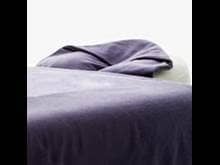 Typically, the total time is 75-90 minutes for the initial appointment, and an hour for appointments after that. In a typical session, my patients change into a gown. Then I take a detailed look at their tongue and take their pulse. I list any diet and lifestyle recommendations that are pertinent, discuss with them the treatment options and recommendations, and set their plan. It takes about 10 minutes for the needles to find their points, and then the needles are left in place for 20 to 30 minutes in most cases. I will often check in at least once with the patient during this resting time. After I remove the needles, I leave to allow the patient to gather themselves and get dressed. Then I answer any final questions and explain any interesting things that they experienced.
Typically, the total time is 75-90 minutes for the initial appointment, and an hour for appointments after that. In a typical session, my patients change into a gown. Then I take a detailed look at their tongue and take their pulse. I list any diet and lifestyle recommendations that are pertinent, discuss with them the treatment options and recommendations, and set their plan. It takes about 10 minutes for the needles to find their points, and then the needles are left in place for 20 to 30 minutes in most cases. I will often check in at least once with the patient during this resting time. After I remove the needles, I leave to allow the patient to gather themselves and get dressed. Then I answer any final questions and explain any interesting things that they experienced.7. Why do you put needles on parts of my body other than the ones that hurt?
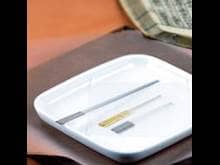 Chinese medicine is called a Medicine of Systematic Correspondences. Every organ has a flavor, a color, an emotion, a time of day, a time of year, and a body fluid that's associated with it. When you draw this web, it's an extraordinarily complicated mesh of interconnections. In the concept of systematic correspondences, the ear, for example, has related points that cover the whole body. The nose has a micro-system. The hands and the feet all have micro-systems. The elbow joint corresponds to the knee joint. So, if you have a very active painful condition in your elbow, a first-time treatment might actually not needle the elbow directly because it might be too inflamed. An acupuncturist might choose the opposite elbow or the opposite knee as a corresponding point to open up that particular type of energy in the body. Sometimes if a person has low abdominal pain, you can needle on the chest and close to the neck, which can be really helpful.
Chinese medicine is called a Medicine of Systematic Correspondences. Every organ has a flavor, a color, an emotion, a time of day, a time of year, and a body fluid that's associated with it. When you draw this web, it's an extraordinarily complicated mesh of interconnections. In the concept of systematic correspondences, the ear, for example, has related points that cover the whole body. The nose has a micro-system. The hands and the feet all have micro-systems. The elbow joint corresponds to the knee joint. So, if you have a very active painful condition in your elbow, a first-time treatment might actually not needle the elbow directly because it might be too inflamed. An acupuncturist might choose the opposite elbow or the opposite knee as a corresponding point to open up that particular type of energy in the body. Sometimes if a person has low abdominal pain, you can needle on the chest and close to the neck, which can be really helpful.8. How long does it take for the average person to start noticing improvement on acute conditions?
 It depends. Some people are wonderful responders. They respond quickly, immediately, and completely. For some people, after one or two treatments the person is 90-100 percent better. Most people are more in the middle. Depending on their condition, the intensity, how deep the problem is in their system, and how long they've had it, they have different responses. I give them a treatment, and they feel a little bit better. I add another treatment, and they feel a little bit better. Usually it takes two or three sessions to figure out their degree of response, but once I have that, I can usually chart a pretty clear line of expectation for when they will feel better.
It depends. Some people are wonderful responders. They respond quickly, immediately, and completely. For some people, after one or two treatments the person is 90-100 percent better. Most people are more in the middle. Depending on their condition, the intensity, how deep the problem is in their system, and how long they've had it, they have different responses. I give them a treatment, and they feel a little bit better. I add another treatment, and they feel a little bit better. Usually it takes two or three sessions to figure out their degree of response, but once I have that, I can usually chart a pretty clear line of expectation for when they will feel better.9. How often should a person get treated for a chronic condition?
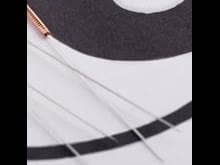 It depends on the condition. When patients first comes in, they might come once a week or once every two weeks. Say they have a back pain, and they've had it for while. They might come once every one or two weeks for a number of sessions until they're stabilized and feel considerably better. After that they might come in for maintenance on a periodic basis. But if their back is feeling a bit achy and they're feeling like it's going to go out again, they might come in for a couple of "tune-up" sessions.
It depends on the condition. When patients first comes in, they might come once a week or once every two weeks. Say they have a back pain, and they've had it for while. They might come once every one or two weeks for a number of sessions until they're stabilized and feel considerably better. After that they might come in for maintenance on a periodic basis. But if their back is feeling a bit achy and they're feeling like it's going to go out again, they might come in for a couple of "tune-up" sessions.10. What else should people know about acupuncture?
 Acupuncture is a medical system, not a magic bullet. It can make a person feel well, but if he or she keeps eating McDonald's three times a day, those problems or illnesses will persist or come back. Acupuncture is about whole-body health, and people have to be willing to make other changes in their lives in order to be healthy.
Acupuncture is a medical system, not a magic bullet. It can make a person feel well, but if he or she keeps eating McDonald's three times a day, those problems or illnesses will persist or come back. Acupuncture is about whole-body health, and people have to be willing to make other changes in their lives in order to be healthy.The truly mind-blowing positive potential, however, is something that I notice in the first few sessions I give to a patient. It might happen the first time, or might take a few visits, but the actual treatment time appears to be a gateway for people to enter very deep and often previously unexplored levels of consciousness within themselves. For some people the experiences seem to last only for the duration of the session, while for others the connection lingers. But whenever it happens, it opens that person up to a whole new and tangible part of themselves. This is an amazing thing.



Tidak ada komentar:
Posting Komentar